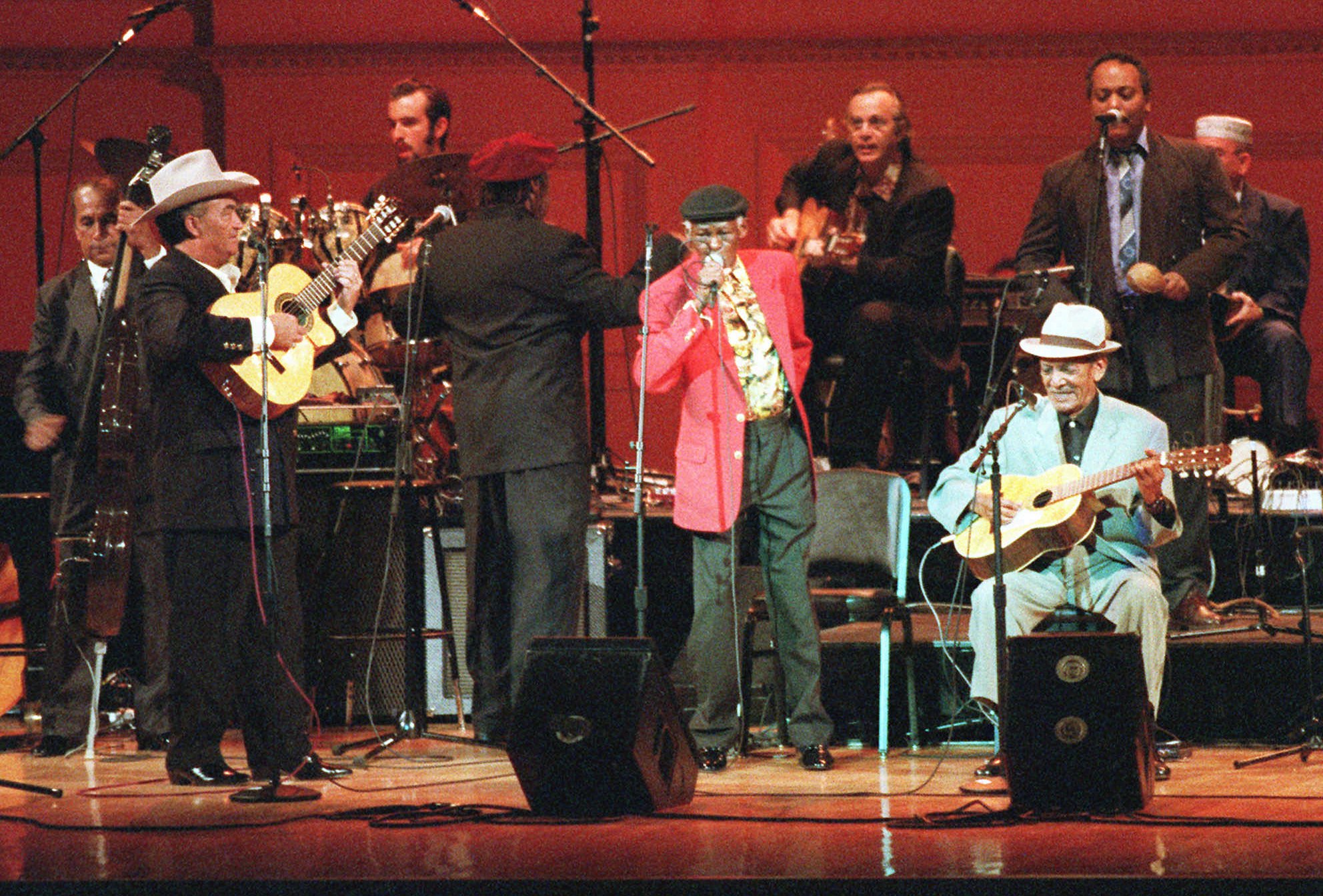
Ry Cooder is the American guitar player involved with the so-called Buena Vista Social Club, a group of local musicians in Havana whose 1997 album led to global fame and a renewed interest in Cuban music. (That included limited touring in the U.S. before the Bush Administration halted the group’s visits stateside.) Reached by phone on Wednesday following the announcement that the Obama Administration would begin working to normalize diplomatic ties with Cuba, Cooder was not surprised, not least because he claims to have heard “through the grapevine” that President Barack Obama was planning something.
He was also aware of the effect the Club’s music, and other cultural exchanges, had piqued curiosity in Cuba that became impossible to ignore. “Pete Seeger suggested that music was a bridge between classes,” Cooder said, noting that after stateside fans of the Buena Vista Social Club wanted to visit Cuba, “You can’t go to people and say You can’t go there.”
Were you surprised by the news of normalizing relations between Cuba and the U.S.?
Well, it is what we’ve been hoping Obama would do. There was word we were getting through the grapevine that he was going to do something before he left office. When we saw he was doing work at that torture center at Guantánamo Bay, we figured he was doing something. We knew it was within his authority to declare such a thing. The embargo is no use. It only brought suffering to men, women and children, like embargoes always do. You ask yourself what venal, grasping, backward looking so and so’s—we could name a few—who benefit? Follow the money, as the man says. We are the only country that did this—and the whole thing was insane. Just stupid. So today, we’re all happy and pleased. You can’t turn back the clock. We, as a nation, have a lot of problems. But something good can come from all of this. I came downstairs this morning and my wife Susan, for once, said “a great thing just happened.” As opposed to all the things we despise!
Did you anticipate that this would happen someday, then, even before Obama’s election?
I did, I really did. I felt that one reason I felt I was somewhat optimistic—tempered by realism—was that after Buena Vista got done and got a Grammy and after the film was a worldwide hit, and we saw Ibrahim Ferrer—we knew, and saw the effect it was having on tourism in Cuba—you can’t go to people and say You can’t go there. They’re going to go anyway. You can’t turn back the clock. If people want to experience something and learn about it, you can’t keep saying no.
Our leading export is this myth of democracy we have. That’s the leading edge of our export efforts. So how can we say to the American people, You can’t do it? The people will go when they want to go! A lot of people went. It’s a trend, a tendency, something that can’t be stopped. The more people want to join up with other people—Pete Seeger suggested that music was a bridge between classes. He used folk music as a bridge because it’s common to people and it’s easy to learn. He could have people singing together within five minutes. And I’ve seen that happen many times, but never so graphically as within this Buena Vista thing. You may be afraid of Cuba. Are you afraid of Rubén González when he plays the piano? No? Well that’s one less thing you’re afraid of.
Ibrahim came to America, and we went to the food store: He’s standing there looking like himself and a nicely dressed woman, elegant, and sees him, the tears came and she started to sob. She saw who it was, the emotional response in the market, in the food line. All she could say was I wish my husband was here. A wonderful exampel of humanity, which touched people. One pretty tune is the same as the next one. It’s not the notes. Many people don’t know what’s being said. What he represented or seemed to radiate—you got this from the record and the film.
Music—it’s the bridge you cross immediately. Any threats, reprisals, hideous bureaucracy, flag-waving—it all dissolves.
Do you think there’ll be renewed cultural exchange between the U.S. and Cuba now?
It’s starting up. There was—Clinton, to some extent, tried to promote this people-to-people thing. When we asked for permission to go down and make records, it was under the auspices of that. It was tough going—the bureaucrats in the State Department were against it. We got, as far as I know, the only variance on a State Department visa for an individual, not a business. I have it still, and it’s interesting to look at, a State Department document signed by him.
We got into the Bush era, and they really clamped down. They let us know, Don’t ever try this again. The first thing we have to do is [get] rid of Guántanamo. But there will be good things happening—and they need all the help they can get.
More Must-Reads from TIME
- Donald Trump Is TIME's 2024 Person of the Year
- Why We Chose Trump as Person of the Year
- Is Intermittent Fasting Good or Bad for You?
- The 100 Must-Read Books of 2024
- The 20 Best Christmas TV Episodes
- Column: If Optimism Feels Ridiculous Now, Try Hope
- The Future of Climate Action Is Trade Policy
- Merle Bombardieri Is Helping People Make the Baby Decision
Contact us at letters@time.com